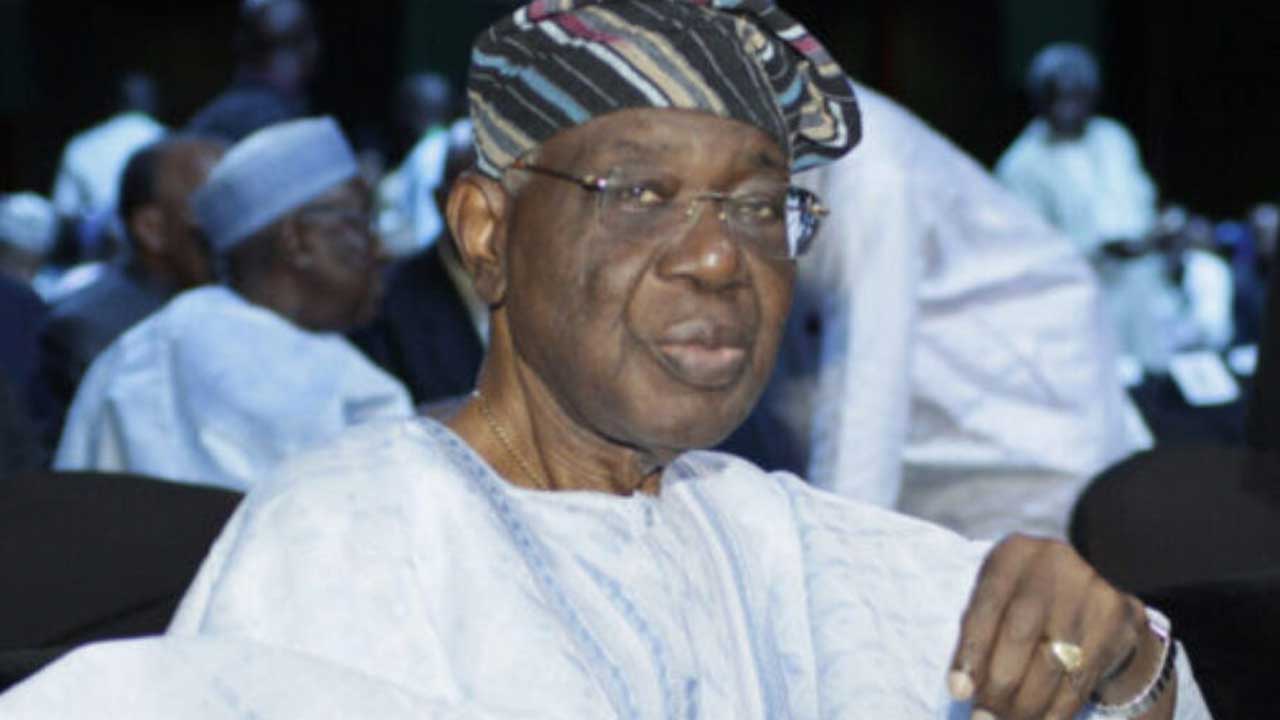
As executive chairman of a business colossus, Shonekan didn’t just happen. He attended reputable schools –CMS Grammar School, Lagos, University of London where he took a law degree in 1962, and Harvard Business School. So educationally grounded, he was employed assistant legal adviser by UAC in 1964. Surely, competence, steadfastness, and patience stood him in good stead to steadily rise through the ranks. At age 40 he was on the board of directors.
In 1980, he attained the topmost position in the group of companies.
As head of the UAC, a company founded in 1929, Shonekan was the private sector’s most important voice on the state of the Nigerian economy. His opinion, nay, pronouncement, on a federal budget made a huge difference between the well informed on such matters and the ordinary man on the street. So influential was Shonekan that when he spoke on matters of the country’s economy, many believed that the UK (that largely owned the UAC) had spoken. Considering his staying power as head of the company, he was a boardroom guru who while in charge – and this is to his eternal credit – also held UAC to its core values and avowed code of business conduct. In sum, Shonekan did well for himself and for UAC. And then he was called ostensibly, to a higher, but arguably a troubling service.
General Ibrahim Babangida, under pressure from the self-inflicted complications and crises of his convoluted, never-ending political plan, invited Shonekan into national service in January 1993 to head a 27-member Transitional Council to run the transition from military to civil rule programme, manage the economy, and implement a somewhat distressed 1993 federal budget. The council was, in Shonekan’s words ‘‘conceived in crisis and born in crisis.’’
Coming from a background of certain management style and values that worked perfectly for the private sector world, Shonekan patriotically took the job bringing what he knew to a Nigerian government system diametrically opposed in values and in practice to what he thought should apply. He applied himself diligently to the task at hand, and with eyes set upon financial prudence, sought debt cancellation from foreign creditors to relieve the national economy, began the process to audit the opaque operations of the huge, intolerably inefficient Federal Government owned oil company NNPC, and set a timetable to withdraw Nigerian troops from the ECOMOG for reasons that obviously include its corruption-ridden drain on the country’s purse.
The Transitional Council was deliberately created to be under the watchful eyes (and subtle and purely self-seeking control) of the military: Babangida was military head of state and General Sani Abacha was both minister of defence an chief of defence staff. If at all Shonekan saw through the contrivance, he stayed focused on doing his duty to his country as best as he could under the circumstance. But he lacked power and authority to do what needed to be done.
Late June, 1993, Babangida (with the connivance, willful or inadvertent, of some other persons and groups) annulled the June 12, 1993 presidential election and thereby outraged the international community as well as threw the country under Shonekan into chaotic protests that in August 26 forced Babangida out of power handing over to an ‘Interim National Government’ headed by Shonekan. But the real power remained with Abacha as defence minister.
Shonekan served in his newly designated position for only 82 days – till November 17, 1993. But again, given where he was coming from – his personality, his training, and his values- he sought to bring some sanity and transparency into governance, in his words, ‘‘to bring honour to government and take steps against …corruption and indiscipline in society.’’ For example, it is reported that he ordered a probe into a N100 million deal between the Nigerian Postal Service, and foreign airlines to distribute mails; sanctioned top officials of the NNPC and sought to bring the private sector to work more closely with government under an ‘‘Economic Action Agenda.’’ He pursued the respect for human rights and freed many detained protesters, pardoned persons accused or convicted of political offences, and generally sought to restore peace and stabilise the country. Furthermore, his interim government had in his words ‘‘put in place the machinery for local and presidential elections in February 1994.’’
Despite his efforts, Abacha, driven by naked ambition, seized power on November 17, 1993. Opinion was rife that, all along, Shonekan was a mere pawn in the game of the military saddled with a bobby-trapped contraption of a government.
Shonekan might be a ‘guru’ in the world of business; placed in the arena of Nigerian politics with despicable and unrepentantly self-seeking players, he was not exactly found wanting. But he certainly didn’t cope well – and for quite understandable reasons. In the business world, he came, he saw, he conquered; in the world of national politics, he came, he saw, did his best. But that was not at all good enough for his country. Certainly, not by the private sector standards that he helped to set. It is regrettable that he did not document for posterity his experience in government.
Should he have accepted Babangida’s offer? Could he have served Nigeria in a different and more effective capacity? The answers to these are anyone’s guess. Could the chief have done things differently? Possibly so; for he should have seen through Babangida’s ‘dark agenda,’ to borrow the phrase of respected columnist Olatunji Dare. Shonekan could have rejected the general’s invitation into government. He, however, accepted. There is no denying that the road taken-or not taken- has made a huge mark on Shonekan’s name and reputation. Nonetheless, his zeal as a patriot was undeniable.






